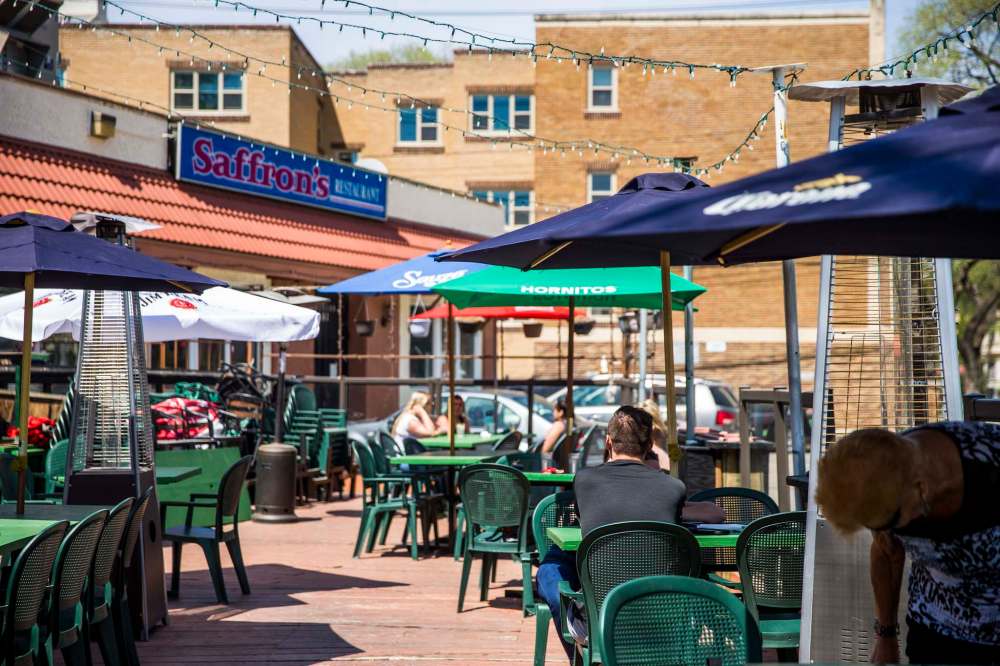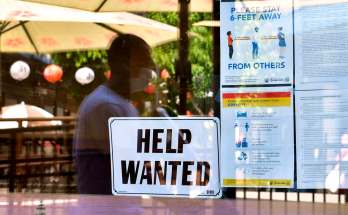Worked up over no workers Restaurants owners struggle to hire staff, compete with pandemic benefits
Read this article for free:
or
Already have an account? Log in here »
To continue reading, please subscribe:
Monthly Digital Subscription
$0 for the first 4 weeks*
- Enjoy unlimited reading on winnipegfreepress.com
- Read the E-Edition, our digital replica newspaper
- Access News Break, our award-winning app
- Play interactive puzzles
*No charge for 4 weeks then price increases to the regular rate of $19.00 plus GST every four weeks. Offer available to new and qualified returning subscribers only. Cancel any time.
Monthly Digital Subscription
$4.75/week*
- Enjoy unlimited reading on winnipegfreepress.com
- Read the E-Edition, our digital replica newspaper
- Access News Break, our award-winning app
- Play interactive puzzles
*Billed as $19 plus GST every four weeks. Cancel any time.
To continue reading, please subscribe:
Add Free Press access to your Brandon Sun subscription for only an additional
$1 for the first 4 weeks*
*Your next subscription payment will increase by $1.00 and you will be charged $16.99 plus GST for four weeks. After four weeks, your payment will increase to $23.99 plus GST every four weeks.
Read unlimited articles for free today:
or
Already have an account? Log in here »
Hey there, time traveller!
This article was published 27/07/2021 (1598 days ago), so information in it may no longer be current.
Andreas Maragkoudakis is forced to work gruelling 12-hour shifts, six days a week — and there’s no relief in sight.
The owner of Daly Burgers on Corydon Avenue is run off his feet because he can’t hire workers. It seems, the restaurants industry is awash with jobs that no one wants.
“It’s so hard to find people,” Maragkoudakis said.
He lost staff during the multiple COVID-19-era closures of in-person dining.
“You have five (interviews). One or two show up,” Maragkoudakis said. “The people who show up, it’s like they are… debating if they need a job or not. And then you ask them, ‘Are you ready to start?’ ‘Yes.’ And then they don’t show up.”
He can’t serve dine-in customers.
Public health orders allow 25 per cent capacity, but the restaurant is so short-staffed, it’s too much for employees to record customers’ IDs and check vaccination status. Some people give fake names, some want to ignore the rules; staff has little time to enforce the rules.
Maragkoudakis only gets a break on Sundays, when he closes his business — a practice that arose from the pandemic.
He is not alone. “Help Wanted” advertisements flicker on billboards and glare from restaurant windows around the city.
“We’re definitely seeing it across Canada,” said Jenny Companion, the vice-president of eastern operations for The Fifteen Group, a hospitality consulting firm.
“Because restaurants were closed for so long… a lot of people have chosen to leave the industry,” she said.

Carlos and Murphy’s, a Mexican eatery in Osborne Village, normally receives 100 resumes in the spring, said owner Daniel Henry. This year, it got three.
“We just don’t have the influx of those people because a lot of them are on CERB (Canadian Emergency Response Benefit),” Henry said. “A lot of people are maybe hesitant to serve because of the amount of people you’re dealing with every day, and the complications with COVID.”
He said he’s down about seven employees and can’t open on Mondays because of the lack of staff. It has to close at 10 p.m. instead of midnight.
Some employees who would normally work full-time hours now take just a few shifts a week so they can collect government funding, Henry said.
“That’s part of the problem as well — people are reducing their availability,” he said.
Eligible Canadians could receive $2,000 every four weeks through the CERB payment. The program has stopped taking applications but there are other federal COVID-19 financial assistance programs such as the Canada Recovery Benefit. It offers $500 a week to a person who is unemployed due to reasons related to COVID-19, or if their income has been reduced by at least 50 per cent due to the pandemic and they aren’t eligible for employment insurance. The benefit ends Sept. 25.

Past employees at Saffron’s Restaurant have told manager Sylvia Bozi they haven’t returned to work because they aren’t comfortable being around many people: restrictions are easing, but the pandemic is ongoing.
“If I say my opinion, it’s because they collect $2,000 from the government,” Bozi said. “What’s the point of working in a kitchen, getting around $2,000 and working all day… rather than not working, at home and getting $2,000 and being… with friends? It makes sense, but it’s not fair for us.”
She said Saffron’s needs to hire from five to 10 people to have a full crew. It has had advertisements posted for months.
“There’s nothing more we can do,” she said. “I think the government can do something about it, not us.”
However, many people have returned to work as restrictions lift — just not to the restaurant industry, said Companion.
“They were able to find jobs, while their restaurants were closed, in other sectors,” she said.
“They were able to find jobs, while their restaurants were closed, in other sectors.” – Jenny Companion, the vice-president of eastern operations for The Fifteen Group, a hospitality consulting firm
Jaimie Terpstra worked at a restaurant for five years, as both hostess and server.
The 23-year-old quit in May. She’s now a support worker.
“I don’t ever want to (return),” Terpstra said.
The closures and reopenings were stressful; she has rent and school to pay for. A more stable job was necessary, she said.
She was on CERB for a few months, and employment insurance. During school, she stayed with her former employer, even as co-workers left.
She said she felt replaceable — though she’d been a longtime employee, she would get poor hours for shifts, and less work seemingly every week.
“Restaurateurs need to look for some alternative strategies to what they’re offering people.” – Jenny Companion
The main reason for the job switch was stability, Terpstra said. But also, she was tired of working in customer service and dealing with rude clients.
Companion, from The Fifteen Group, said she thinks people may come back to the industry when they’re more confident lockdowns are a thing of the past.
“Restaurateurs need to look for some alternative strategies to what they’re offering people,” she said.
Bumping up pay, steering clear of long hours and providing discounted meals are options to attract employees, Companion said.
Raising workers’ pay would affect small business G.G. Gelati negatively, said owner Lucy Bao.
“These couple years haven’t really been about the profit,” she said. “It’s just a pivot.”
She said government subsidies have helped during the pandemic, but operating costs would be difficult to cover if she had to boost workers’ pay.
gabrielle.piche@freepress.mb.ca

Gabby is a big fan of people, writing and learning. She graduated from Red River College’s Creative Communications program in the spring of 2020.
Our newsroom depends on a growing audience of readers to power our journalism. If you are not a paid reader, please consider becoming a subscriber.
Our newsroom depends on its audience of readers to power our journalism. Thank you for your support.
History
Updated on Wednesday, July 28, 2021 9:36 AM CDT: Adds web headline






